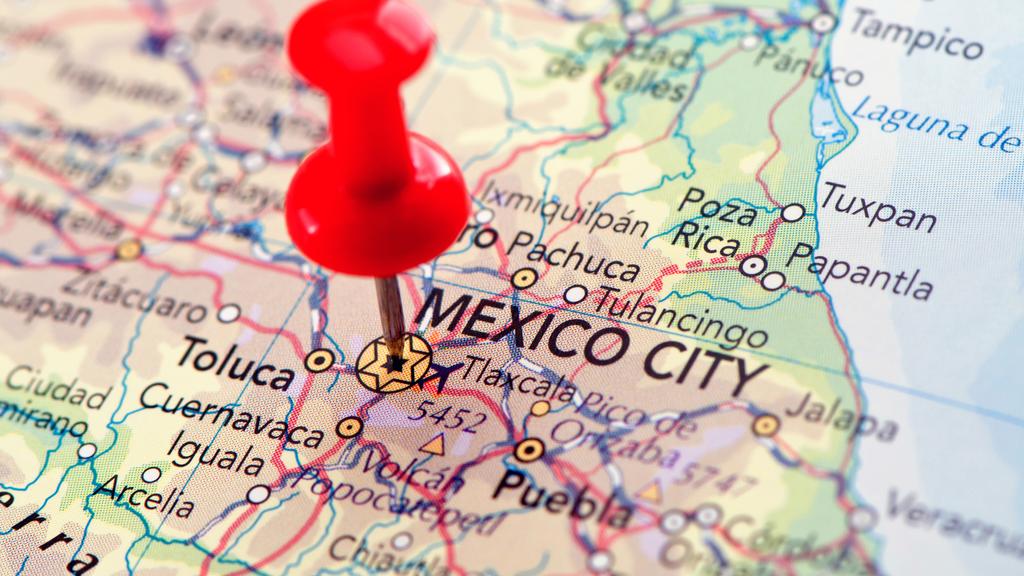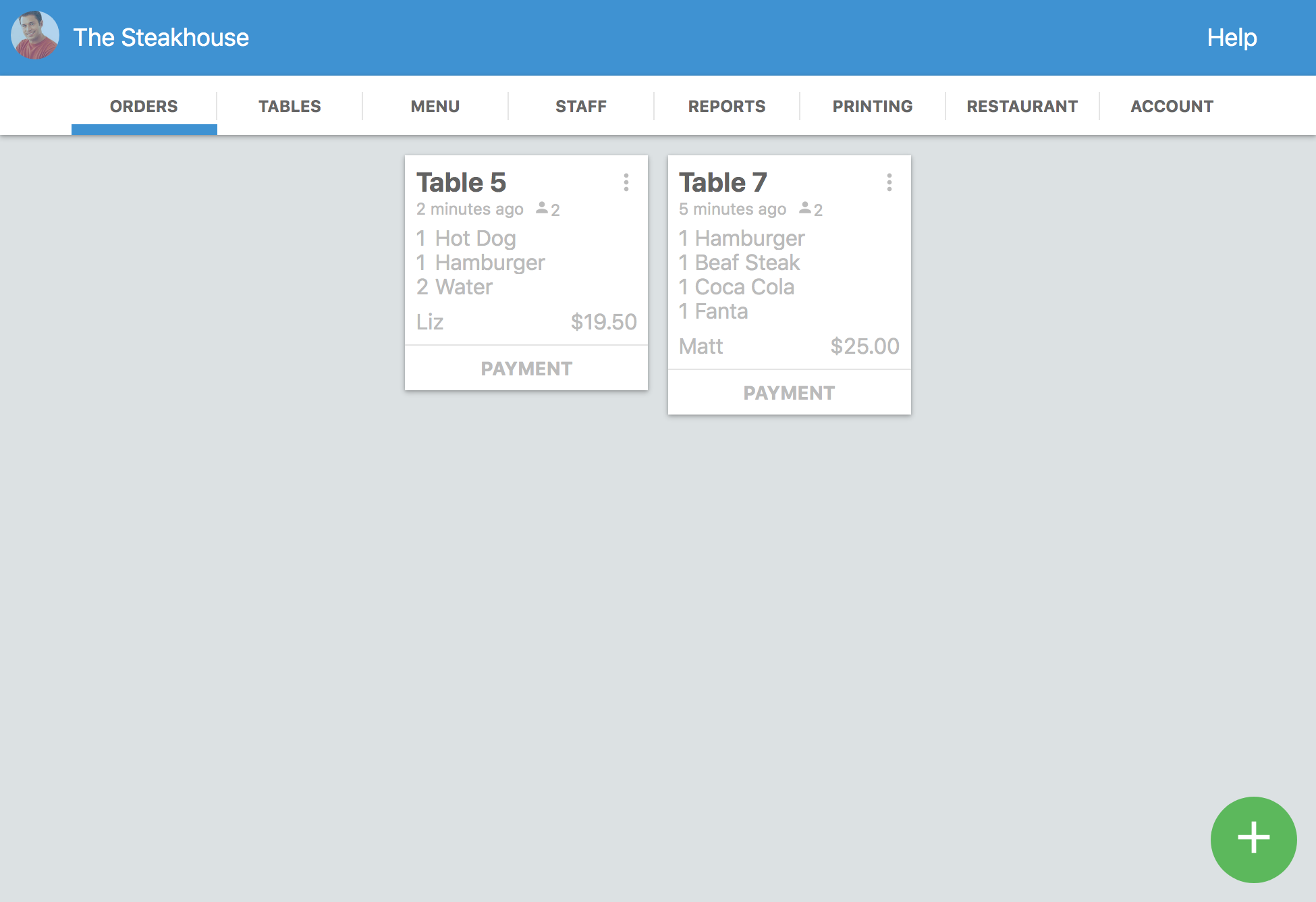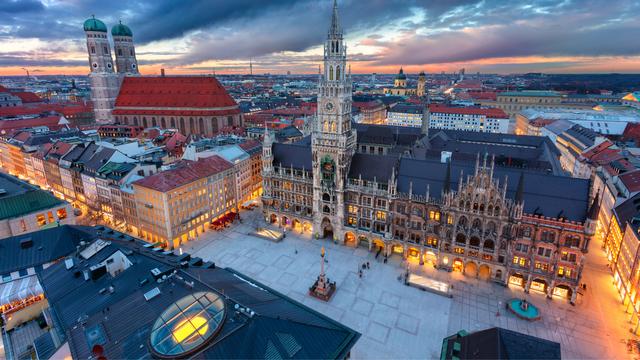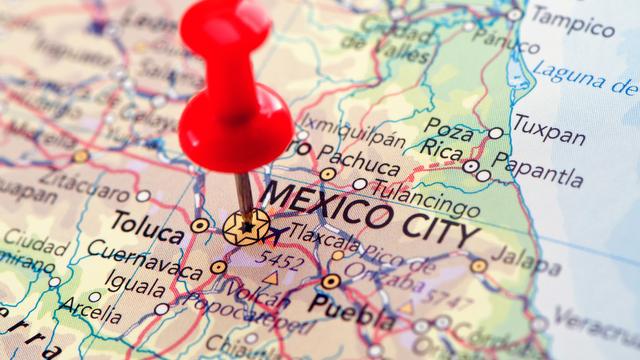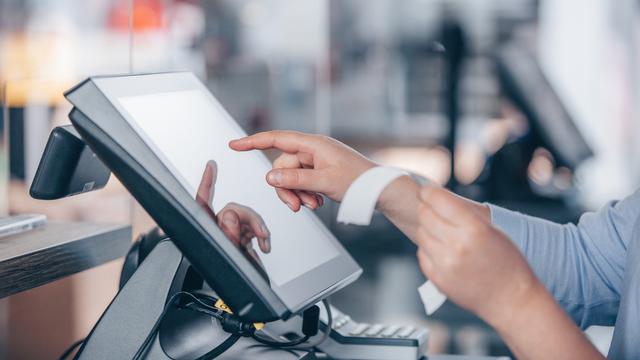Opening a restaurant in CDMX is an attractive idea. A beautiful, thriving, technological city with a dash of archeological sights and a sizeable population might be the place you’re looking for to start your business. In this article, we’ll go over the following topics:
- The different permits you need to open a restaurant or food truck in CDMX
- The advantages and limitations of opening a business in this part of Mexico
- The numerous tips you can use to start a food business in CDMX
This guide also covers expat entrepreneurs. With the right help and resources, creating a restaurant in CDMX from anywhere in the world is possible. This article is the “push sign” you must follow to own a business in Mexico. Are you willing to push on? Let’s find out!
Why Is It So Attractive to Open a Restaurant in Ciudad De Mexico?
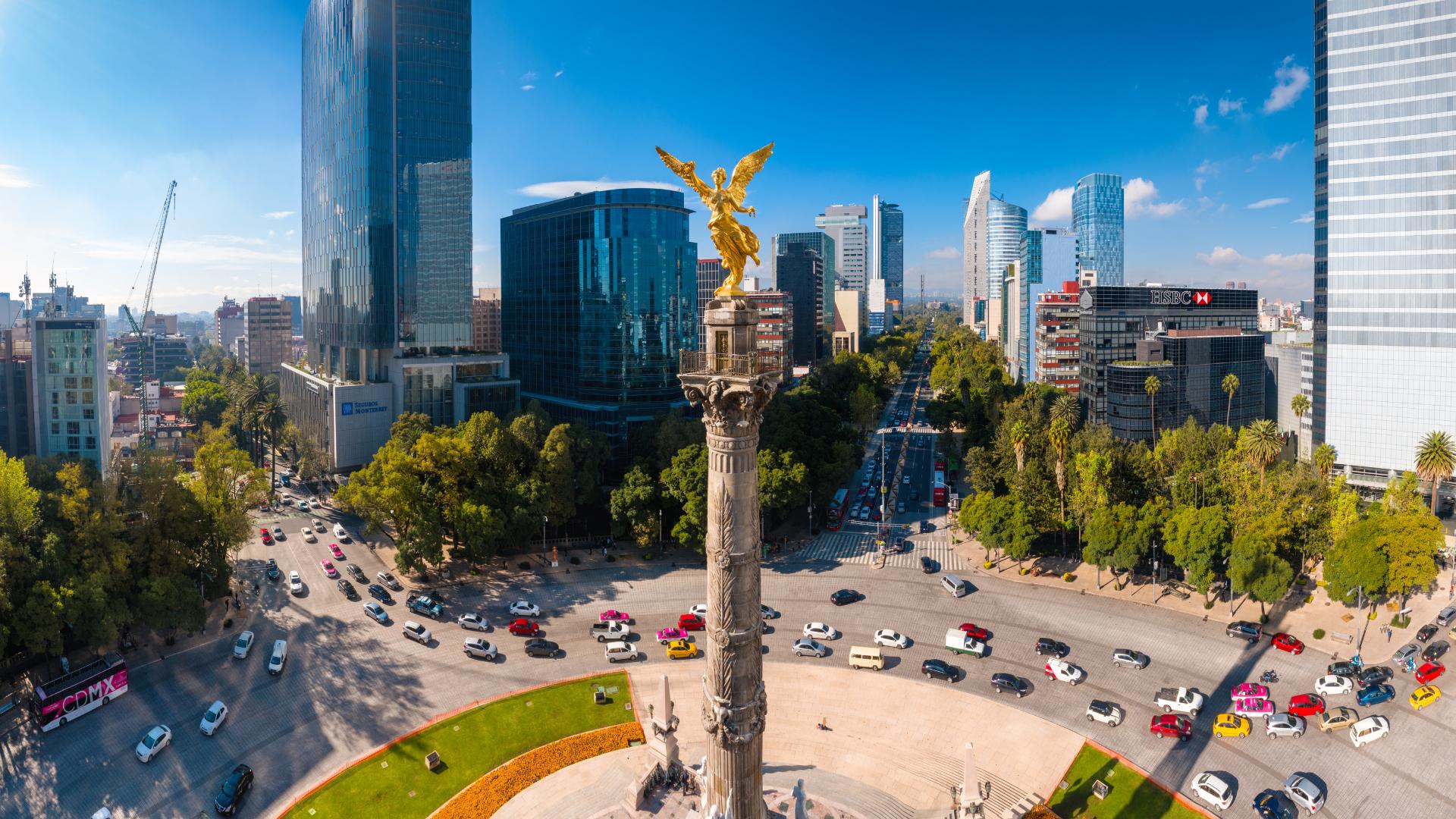
Mexico City, or CDMX, is a top contender on several lists:
- It’s one of the most culturally diverse cities in America and the world.
- It’s one of the cities with the highest population.
- And it’s one of the fastest-growing city economies, too.
Aside from that, several other advantages make it one of the best cities to open a restaurant in:
- Thriving culinary scene: CDMX boasts a vibrant and diverse dining scene, attracting both locals and tourists and increasing the potential customer base.
- Foodie culture: Residents are passionate about food, open to new experiences, and willing to support innovative concepts.
- Access to fresh ingredients: Proximity to diverse agricultural regions provides access to high-quality produce and unique ingredients.
- Skilled workforce: A large pool of culinary talent and experienced hospitality professionals are available for hire.
- Growing economy: Mexico's growing economy signifies increased disposable income for dining out.
- Government support: Initiatives like "Marca CDMX" offer support and promotion for local businesses.
So, there’s no doubt that opening a restaurant in CDMX can be an interesting and highly profitable project if you organize it properly. Of course, it’s not all good, as those same advantages come with a few negative surprises:
- High competition: The crowded market means standing out can be challenging.
- Regulations and bureaucracy: Obtaining permits and navigating regulations can be complex and time-consuming.
- High rent and operational costs: Real estate and staff salaries can be expensive compared to other parts of Mexico.
- Safety concerns: Security can be a concern in certain areas, requiring extra security measures.
- Seasonality: Tourism-reliant areas might experience fluctuations in customer traffic throughout the year.
- Informal market competition: Street vendors can offer similar food at lower prices, attracting price-conscious customers.
Still, we deem these obstacles reasonable in many ways—there are places where opening a business is much more difficult.
Other Considerations
There are other factors you must consider when opening a restaurant in CDMX:
- Location: Ciudad de Mexico is gigantic! It boasts a size of 1,495 square kilometers (577 sq mi), which is much larger than NYC. There’s a lot of space and interesting locations to explore—it will be easier to find the right spot for your business. Additionally, since there’s more space, the prices are likely much more affordable in comparison to other cities.
- Concept and target audience: CDMX is one of the most culturally diverse cities in America. That also means it has a lot of diversity in terms of audience segments. You’ll be able to explore different business plans, concepts, and even marketing approaches to work with any audience you want.
Finally, if you’re planning to open a restaurant, you must self-assess your business knowledge and how ready you are to become an entrepreneur. This is one of the biggest considerations when opening a new business. Otherwise, you’ll need to contact local experts to aid you in your new business venture.
Permits to Open a Restaurant in CDMX
Now that you know all the benefits of opening a business in Ciudad de Mexico, it’s time to take a look at what you’ll need to open a successful restaurant. Opening a restaurant in Mexico requires at least 8 permits and licenses (except for the permit for selling alcoholic beverages, which is optional but very beneficial). To obtain some of these permits, you will require the help of a legal advisor or representative, especially if you’re doing business as an expat.
1. Constitution of the Company
Opening a restaurant almost anywhere in the world requires you to create and register a business. You can also do this to open a food truck. This is one of the most important requirements you must attend to at the beginning of this bureaucratic journey. To register your company in Mexico, you just have to:
- Obtain approval of the name of your company from the Ministry of Economy. Your name must be original and not being used by any other business in Mexico.
- And prepare a charter for your company. The charter is the main document you’ll use to describe your business and its components, assets, and capital, among other details, to the regulatory authorities.
I will talk more about these two requirements below.
1.1 Request the Company Name at the Ministry of Economy
The Ministry of Economy is the entity basically in charge of registering your company. For that, you must go to the delegations and sub-delegations of the Ministry of Economy. You can also use the e-Firma (e.Signature), which I will tell you about later, to complete the procedure online. This procedure is completely free, and it will not take more than a week to get a response. All you need to do is provide information about the company you want to register.
2. Incorporation of Your Company

This step is optional since you can register your company as a natural person or legal entity. If you decide to register your company as a legal entity, then you will necessarily need a charter. To draft the articles of incorporation of your company, you must have legal advice. It is very important to write a charter that complies with general regulations. It should contain information about the company, the members of the society, and more. It’ll be done once it's signed before a notary public and at the Public Property Registry. The costs for this procedure can vary between MXN 5,000 and MXN 10,000, depending on where you are and the notary public.
3. SAT Procedures
There are various procedures that you must complete at the Tax Administration Service (SAT in Spanish) offices to start paying taxes for your restaurant or food truck.
- Federal taxpayer registration.
- e.Firma. and processing of digital seal certificates.
These procedures are quite simple, although they do have many requirements.
3.1 Federal Taxpayer Registration
You will be able to process your company's RFC at the SAT offices of the town where you registered your company. You can also pre-register your company online through the SAT portal. You must fill out the forms with all the information on the constitution of your company, your partners, the type of business you plan to establish and its economic activity, and more. Then, you will receive an acknowledgment receipt for the Federal Taxpayers Registry pre-registration. You will have to print it, schedule an appointment at the SAT, and go on the day you choose with the following documents:
- Official document of incorporation (certified copy).
- Acknowledgment of pre-registration in the RFC, in the case of initiating the application through the SAT Portal.
- Proof of address.
- Power of attorney in case of legal representation, proving the personality of the legal representative (certified copy), or power of attorney signed before two witnesses and the signatures ratified before the tax authorities or before a public notary (original). If it was granted abroad, it must be duly apostilled or legalized and have been formalized before a Mexican public notary and, where appropriate, have a translation into Spanish by an authorized expert.
- Current and original official identification of the legal representative.
- In the case of legal entities other than those with non-profit purposes, they must present the valid Federal Taxpayers Registry code of each of the partners, shareholders, or associates mentioned in the articles of incorporation (simple copy).
- A written statement that contains the valid RFC keys of the partners, shareholders, or associates, if they are not found within the (original) articles of incorporation.
Because it has similar requirements to those of the e.Firma process, you can complete both procedures on the same day and save a lot of time. Of course, you must schedule both of them accordingly and be ready to move from one to the other as fast as possible.
3.2 Process the e-Firma of Your Company
To process the e-Firma for your company, you must present:
- An email you use.
- A flash drive (USB) with a .req file previously generated using the Certifica program.
- The official FE form is "Solicitud de Certificado de e.Firma.". You can download it on this page of the SAT portal. You must present it in duplicate and sign with a blue ink pen.
- A certified copy of the notarized constitutive document of the company.
- Valid official identification of the legal representative of the company.
- A certified copy of the general power of attorney for acts of domain or administration proves the legal representative’s identity. If it has been carried out abroad, it must be duly legalized or apostilled and formalized before a Mexican public notary.
- The RFC code of each of the partners, shareholders, or associates mentioned in the articles of incorporation. If there are more than five partners, you must bring a removable memory with an Excel file (.XLSX) with certain specifications that you will find in this PDF file.
- A written statement that contains the valid RFC keys of the partners, shareholders, or associates, if they are not found within the original articles of incorporation.
You must have legal advice to validate these requirements in advance. This will save you a lot of time! To do it as a natural person (only if you’re Mexican, a resident, or a citizen), you will only need:
- CURP, or birth certificate of the legal representative.
- Valid official identification (it can be your passport, driver's license, professional card, or INAPAM credential for older adults)
- Proof of tax address.
- Company charter.
After completing this process (which is much faster than it seems), you will receive an acknowledgment of registration with the Federal Taxpayer Registry (RFC) and a guide to your company’s tax obligations. Then, you can process the Digital Seal Certificate to issue invoices. This process begins by generating a file (.sdg) using the program SAT Certifica. The steps are quite simple, and you will only require your e-Firma.
4. Uso de Suelo Comercial
One of the first permits you will need is the Uso de Suelo Commercial or Commercial Land Use. In Mexico, there are different types of land uses, which vary depending on the type of use for which they are intended. To open a restaurant, you will need to process the commercial land use in the municipal offices of the city where you want to open the restaurant. Some of the requirements are:
- Articles of incorporation.
- Valid official identification with a photograph.
- Proof of address.
- Location sketch.
- Property deeds.
- Topographic map.
- Valid property ticket.
- An application letter.
- UTM coordinate plane.
- And more, depending on the municipality in which you are.
The costs of this procedure vary between MXN 1,000 and MXN 10,000. It is not necessary to open a food truck.
5. Employer Registration at the IMSS
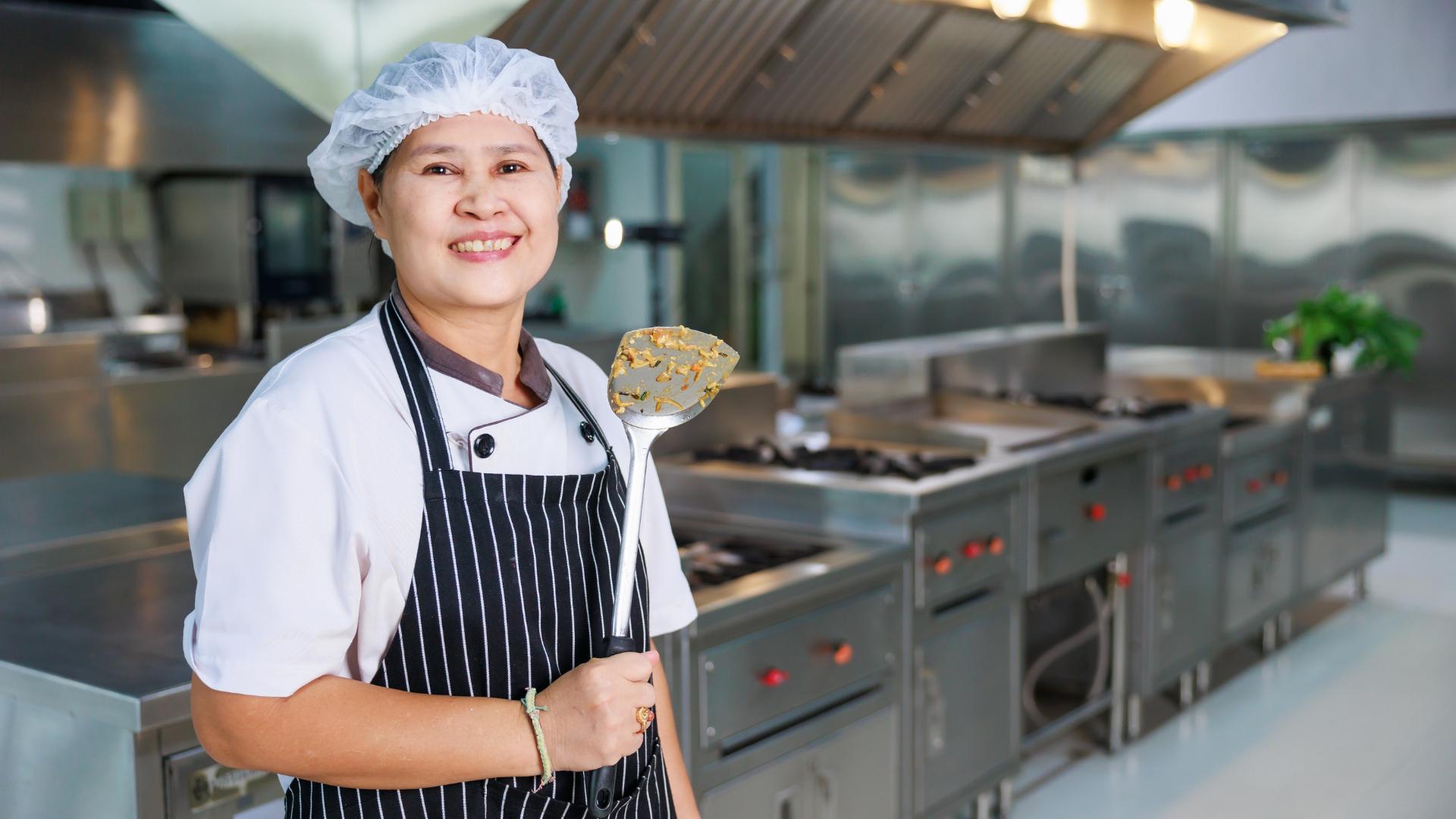
Employer registration is a procedure that you will need to be able to hire and register the staff of your restaurant or food truck, and you must obtain it regardless of whether you register the company as an individual or legal entity. These are the requirements:
- A copy of the Federal Taxpayers Registry (RFC) of the fiscal domicile and/or Notice of Establishment Opening.
- Original and copy of proof of the address of the work center.
- An original sketch of the location of the workplace address.
- Valid official identification of the employer. Original and copy.
- Unique Population Registry Code (CURP). Copy.
- In the case of having a legal representative, a power of attorney for acts of domain, administration, or special power where it is specified that they can carry out all kinds of procedures and sign documents before the IMSS. Original and copy.
- Current official identification of the legal representative. Original and copy.
- Federal Taxpayers Registry (RFC) of the legal representative. Copy.
- Unique Population Registry Code (CURP) of the legal representative. Copy.
- Proof of tax address. Original and copy.
This procedure can be carried out by the employer in person or by the company’s legal representative. It is free and does not take much time.
6. Permit or Civil Protection Approval
The Civil Protection Approval (visto bueno de Protección Civil) is something that you must request from the local Civil Protection jurisdiction in your restaurant’s area. The requirements to get the permit may vary depending on where you are. However, as general rules, you must: comply with the rules dictated by CDMX city. All these rules talk about the security measures of your restaurant.
- Have electrical installations in good condition.
- Have gas installations in good condition and correctly marked.
- You should have an internal civil protection program with an action plan in case of emergencies such as fires, earthquakes, and more.
- Your employees must have training certificates issued by your local civil protection entity.
- And more, depending on the regulations of your location in the city. There might be specific regulations for certain parts of the city, such as public archeological sites or culturally influential buildings.
Having the go-ahead from Civil Protection is vital to opening your restaurant and making sure you are taking care of your staff and customers correctly.
7. Operation notice to COFEPRIS
The Federal Commission for the Protection Against Sanitary Risks, or COFEPRIS is the sanitary authority that will be in charge of giving you suggestions, verifications, fines, and more about the healthiness of your restaurant. You should implement good health guidelines throughout your restaurant. Once you open your restaurant (or even when everything is ready but before opening), you can give a Notice of Operation to COFEPRIS. You must provide all the information in this format. After the notice, you can wait for regulatory visits at your restaurant.
8. Operating License
The operating license is an essential procedure to open your restaurant for the first time; you cannot start without this permission. This is a municipal procedure, so you should find out the exact requirements at the corresponding local offices. Some common requirements are:
- Articles of Incorporation.
- Official identification (IFE, INE, valid passport).
- Federal Taxpayers Registry (RFC).
- Proof of address.
- Location sketch.
- Proof of payment.
- Power of attorney (with official identification of the attorney-in-fact)
- Land use license.
- Current municipal civil protection feasibility opinion.
- Sanitary license for economic units that sell food.
The cost of this procedure also varies a lot depending on where you are.
9. License for the Sale of Alcohol

If you want to offer alcoholic beverages in your restaurant, you will need a license for the sale of alcoholic beverages. Currently, these licenses are not granted to food trucks. This type of license is obtained in your local municipality; the requirements and costs vary greatly depending on this. It should be noted that this is one of the most important and expensive permits that you should consider when opening a restaurant. The 4 most common steps are:
- You must process your Municipal Operating License. You must request a Land Use and Feasibility Report of Type “C” and specify that it is a restaurant that sells alcoholic beverages.
- If your application is approved, you will receive a Municipal Functioning Registration Plate. This still does not authorize you to sell alcohol in your restaurant.
- You must then go to the offices of the Secretary of Government to request a license for the sale of alcoholic beverages.
- When you have the authorization of the state government, you must request the increase from General Line to Alcohol Line at the Department of Operating Licenses.
For each of these steps, you will need different requirements, such as:
- Constitutive Act.
- Your official identification or that of the legal representative of the company.
- Federal Taxpayers Registry (RFC) of the partners of the company and the legal representative.
- Photographs from different angles of the facilities in your restaurant.
- Proof of address.
- Location sketch.
- Proof of payment.
- Power of attorney (with official identification of the attorney-in-fact)
- Copy of the land use report.
The costs, difficulty of the procedures, and delivery times vary depending on where you are.
10. Municipal Outdoor Ad Permit
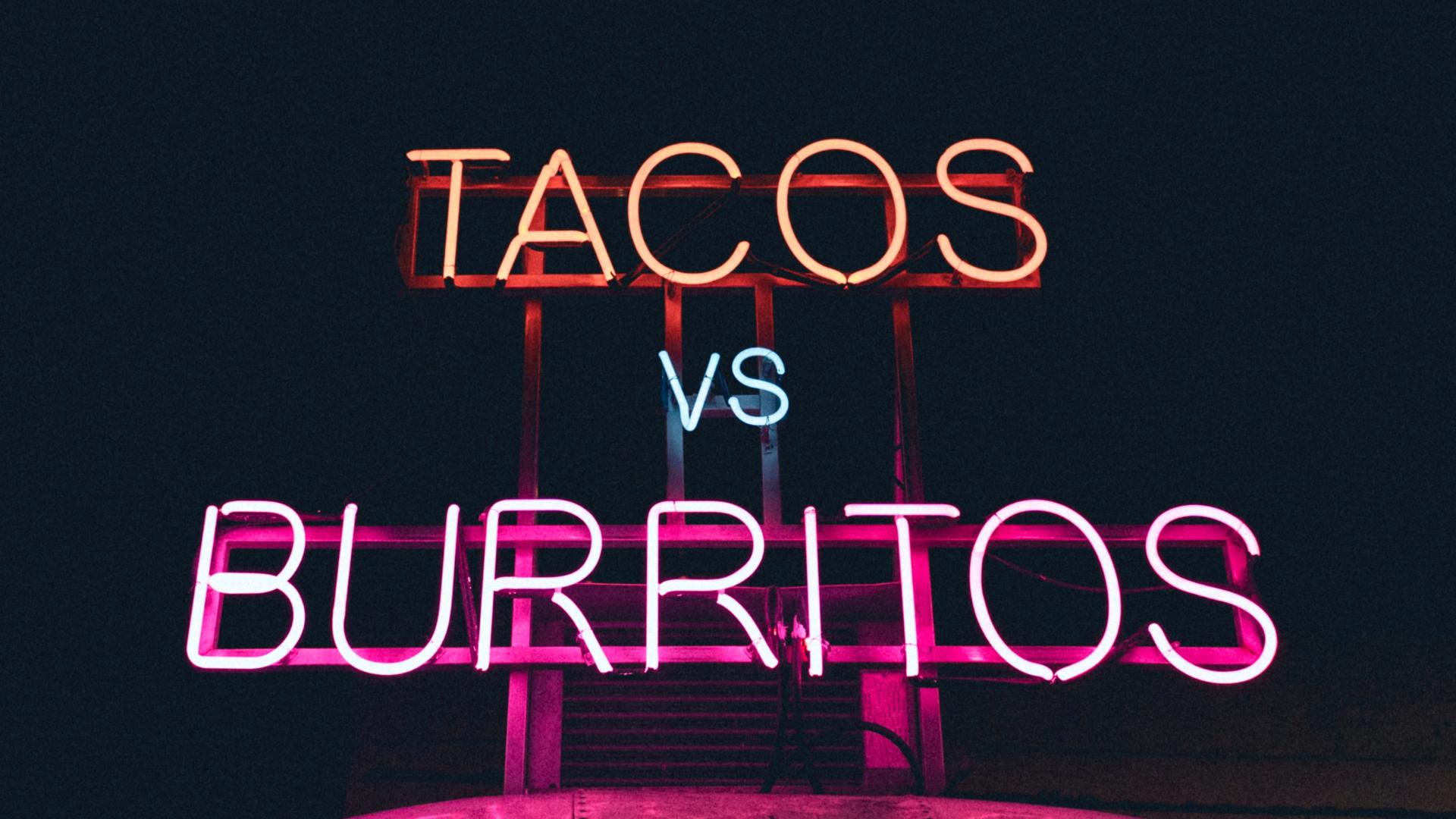
Despite being one of the least important items on the list, the outdoor sign permit is vital for advertising your restaurant. This is a municipal permit, so to get it, you should check out the website of the CDMX government. Some of the most common requirements are:
- Fill out a form with the request for the ad and one for the technical opinion of the ad.
- Photograph of the place where you plan to place the ad.
- Company charter.
- A signed power of attorney authorizes the legal representative of the company to process this permit.
- Copy of the business license.
- Current identification.
- Payment confirmation.
- Structural information.
- Among others.
It is also a good idea to contact experts in the field for some advice on the type of ad you can place. This way, you can avoid penalties due to the morality of the ad or ease the process of creating an ad in a place of cultural significance, among others. This procedure can be quite pricey depending on the location of the business.
Permits for a Food Truck in CDMX
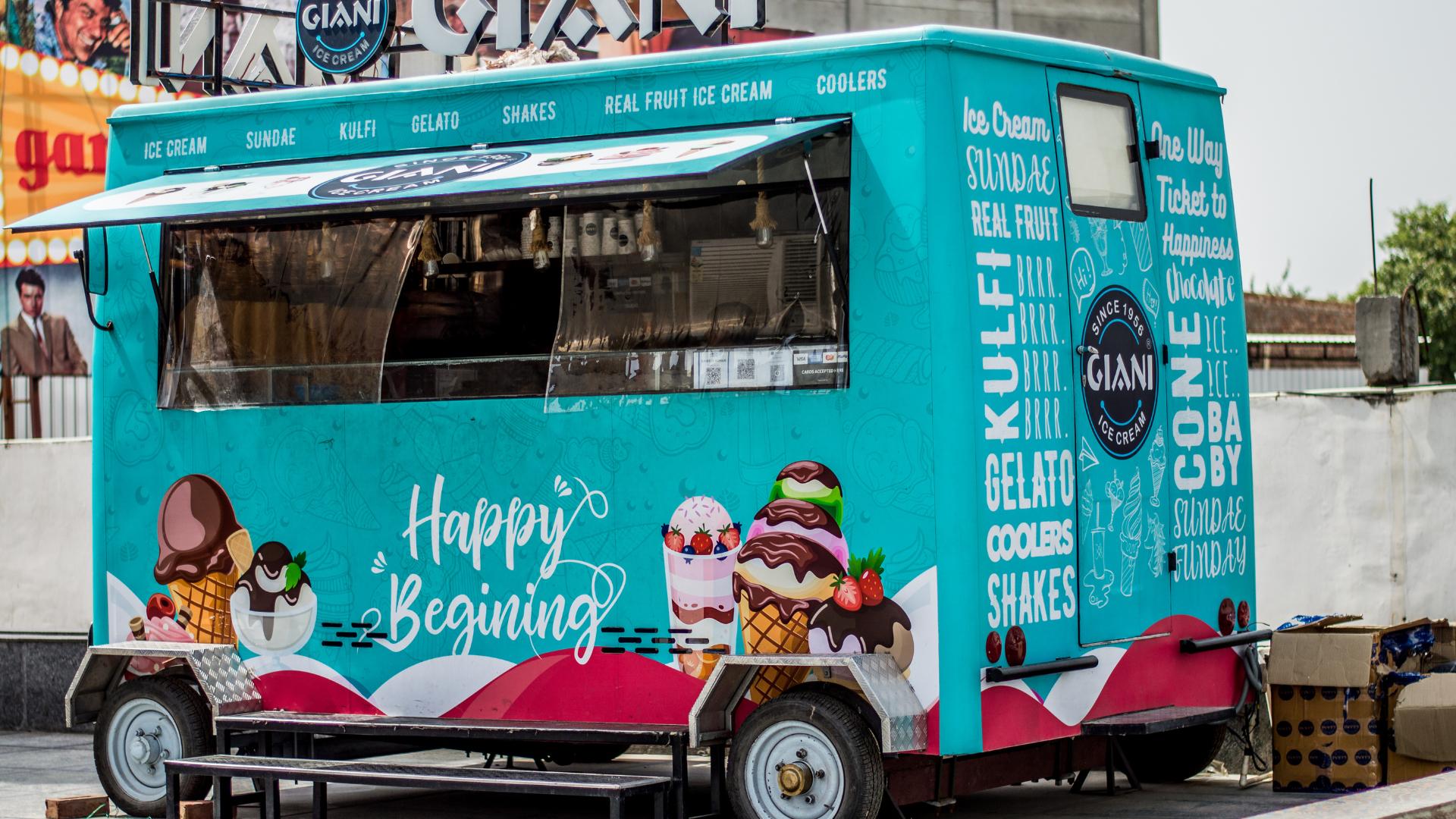
A food truck is yet another viable option for entrepreneurs who are worried about their budgets. Of course, on the flip side, if you have a sizeable budget, you can open a very specialized food truck with everything you need or open several. Regardless of the scope of your entrepreneurial ambitions, you must get several permits to operate a food truck business in CDMX. To open a food truck in Mexico, you need about 3 permits and licenses, in addition to completing the necessary procedures to register your company. In addition, there is also the possibility of renting a food truck, which will greatly reduce costs in the beginning. Below, we detail the most important permits you’ll need.
1. Permit to Do Business in Public Spaces (Food Truck)
This permit is one of the most important that you must have before starting to operate your food truck. This is also a municipal permit, so you must go to the offices of your municipality to obtain all the requirements. Some of the most common requirements are:
- A record of good sanitary practices verifies that you prepare food in your food truck safely and hygienically.
- The approval of the local Civil Protection Association.
- Photographs of the food truck from different angles and in color.
- Proof of address.
- You will also need to make sure that you are operating in a non-prohibited line of business, such as selling alcohol—this is one of the downsides of food trucks.
One way to get advice on how to set up a food truck in Mexico is to join a food truck association since they will provide you with the necessary information for the permit. For example, you can visit this Facebook group to find out more information and interact with local business owners.
2. Civil Protection Approval (Food Truck)
This is the same permit you would need for a restaurant. The main differences between what you need for a restaurant and a food truck are:
- Comply with the established and applicable rules of NOM-001-STPS, NOM-002-STPS, and NOM-017-STPS. It is not necessary, for example, that you have an emergency staircase.
- Have certified gas installations in good condition and correctly marked.
- Your employees (if you have any) must have training certificates issued by your local civil protection entity.
- And more, depending on the regulations of the location of the food truck.
Normally, food truck associations can help you with these procedures to speed up the start of your operations.
3. Other Aspects to Consider
Before starting to operate your restaurant or food truck, you should consider:
- Create a floor design for your restaurant or food truck that is efficient and safe.
- Decide whether to operate as a legal person or a natural person.
- Opening bank accounts for your business—it’s vital to receive card payments.
- Get a legal representative for your company.
- Buy insurance for your restaurant or food truck.
- Join an association, such as the CDMX Chamber of Commerce or the food truck association, to get advice.
Each of these decisions is important, so you should think carefully before making them.
8 Tips To Open a Restaurant in CDMX
Regardless of your approach to business, your expertise, and more, opening a restaurant in CDMX comes with several unique challenges. There are several things you must consider when opening a food business, or any other, in a culturally influential city such as CDMX. With numerous cultural buildings, excavation sites, and even tourist attractions, come several challenges to operating your business. Of course, that’s only if you want to operate near those sites. There’s also the culturally diverse demographical landscape, which is also a big influence that applies throughout the city—adapting well to it is key to achieving success. Find out how to circumvent those challenges in the following tips.
1. Adapt to the multiple cultural influences
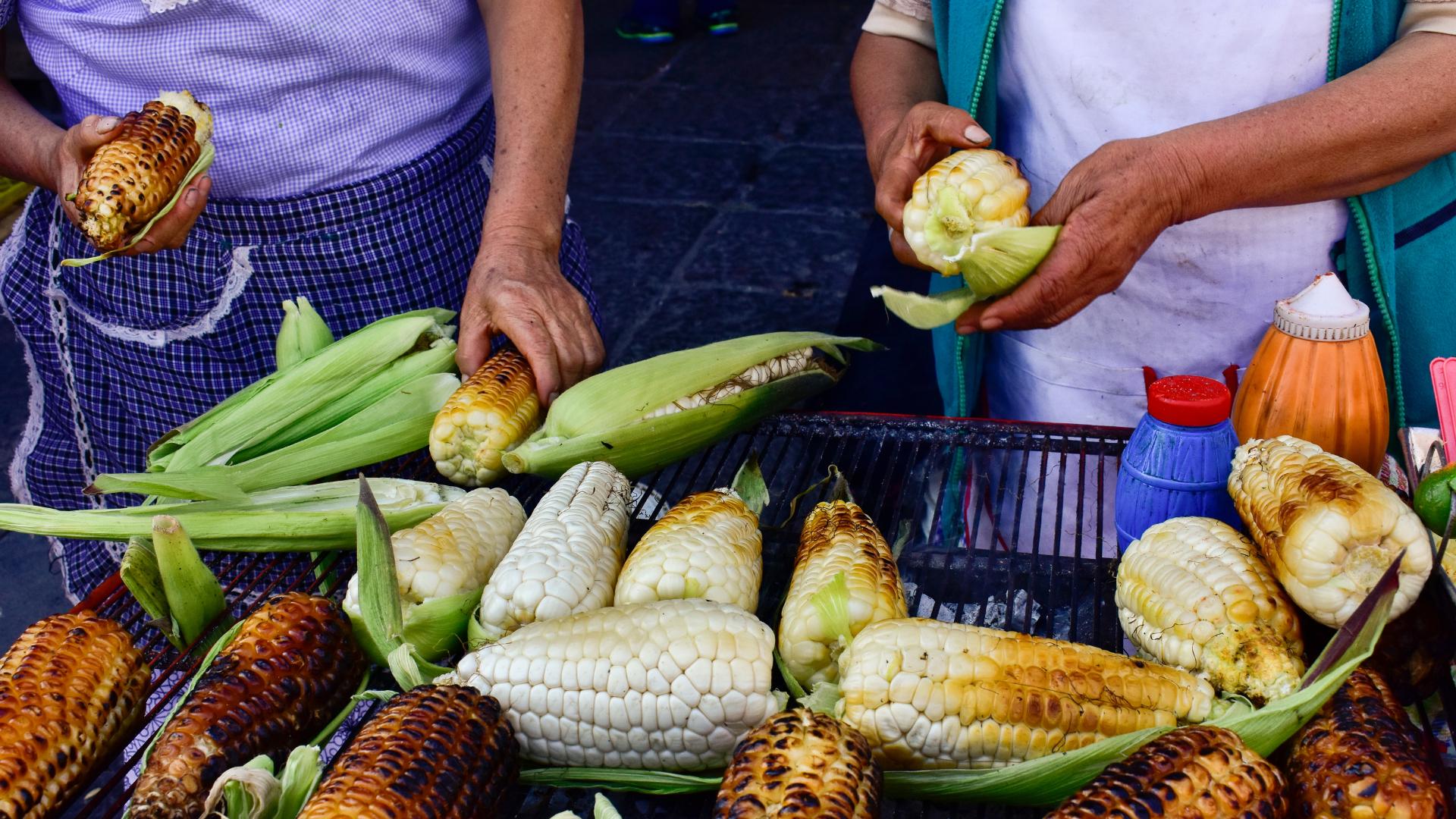
Be mindful of the various local, regional, and even international influences shaping CDMX's diverse palate. Research different communities and their preferences to come up with a business plan and restaurant concept that adapts well to them. Keep in mind that this will have a noticeable impact on several areas of your restaurant, from your marketing efforts to the type of service you offer.
2. Respect local traditions
Acknowledge and respect established culinary traditions while offering your unique twist. Tradition is a defining factor across Mexico. Its population is also aware of gentrification trends, which are degrading and insulting to their lifestyle. Thus, adapting well and respecting traditions is a good idea. Of course, that doesn’t mean you shouldn’t come up with something original that integrates with local customs and gastronomic traditions.
3. Cater to dietary needs
On the flip side of gentrification, with the growth of the city and the increase of cultural exchanges, there are different dietary needs you must consider when creating your business. Consider the growing demand for vegetarian, vegan, and allergen-free options alongside classic dishes. This can lead you to create an interesting offer to cater to the needs of often-overlooked audience segments.
4. Formal vs. informal markets
Understand the distinction between formal restaurants and the vibrant street food scene, and navigate regulations accordingly. This is important in a city with a thriving informal economy. Food trucks and other forms of food business, such as food carts, are also viable business options. Still, there’s a big advantage to formalizing the business, regardless of the type.
5. Sustainability requirements
Be aware of any regulations regarding waste management, responsible sourcing, and eco-friendly practices. This is especially important since in previous years, there’s been a strong push from the CDMX government to improve the sustainability of the city as a whole. That means there are constant changes to sustainability laws and requirements.
6. Seasonality and tourism dependence
Adjust your offerings and staffing based on tourist influx and local festivities. Tourism plays a big role in restaurant success, especially in cities such as CDMX where it’s an important economic growth indicator.
7. Locally sourced ingredients
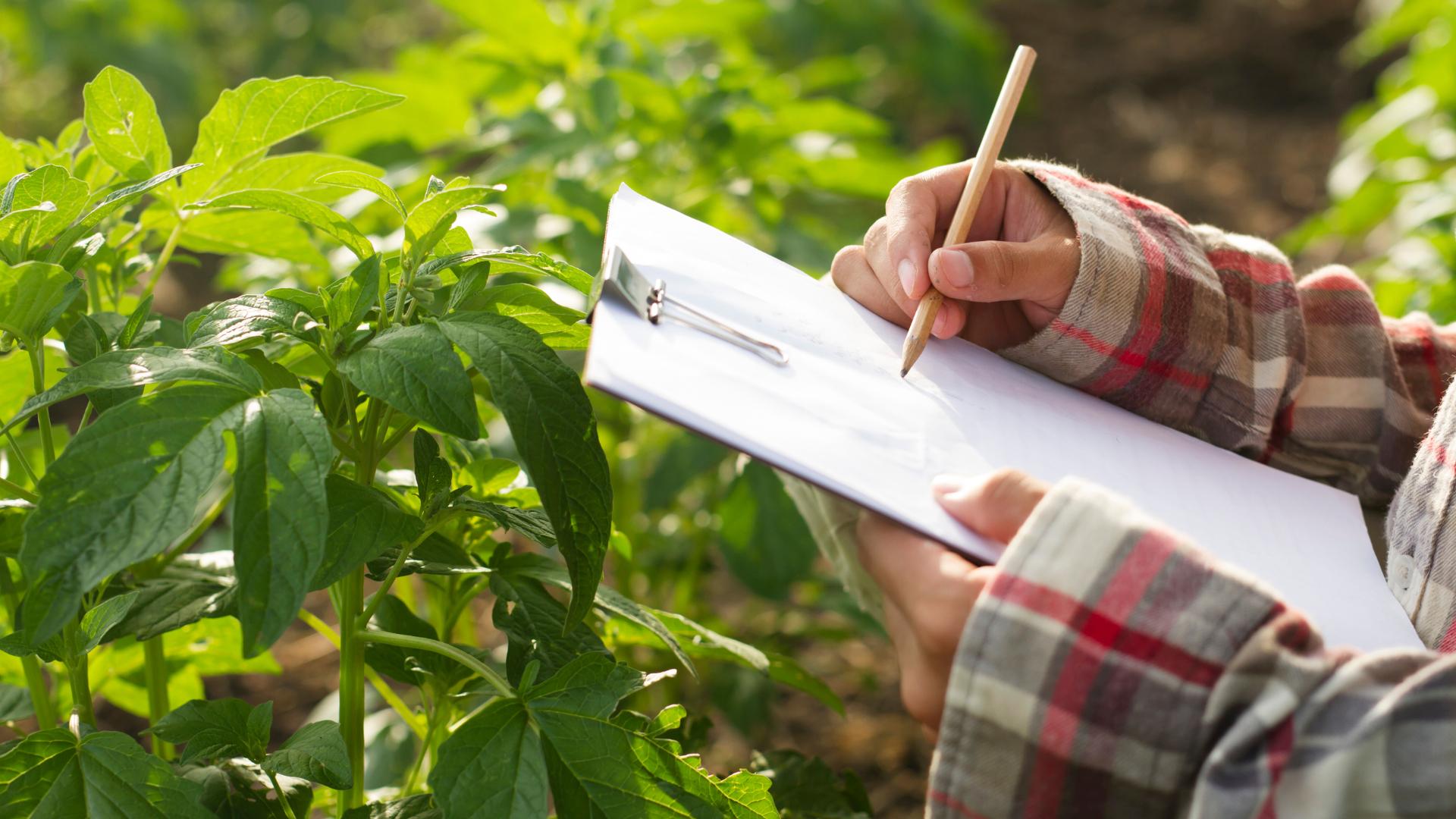
Support local farmers and producers to enhance freshness, quality, and community connections. There are also local ingredients that are highly valued because of the very fact that they are locally grown or authentic. This has a lot to do with tradition in the preparation of dishes—make sure to get the good stuff!
8. Collaboration with local artists
Partner with local artists, musicians, or artisans to create a unique ambiance and showcase cultural diversity. CDMX is a vibrating city when it comes to arts and culture. From authentic Mexican pottery to local folkloric music, you can integrate all of these elements into your culinary offer and experience.
Opening a Restaurant in CDMX Might Be the Perfect Challenge
Opening a restaurant is not an easy endeavor. However, if you’re a seasoned entrepreneur, CDMX might be the perfect place to start a food business. As you read previously, numerous considerations are specific to this amazing, culturally influential city. That’s why, if you own a food business, and you know everything it takes to open a restaurant, repeating the process in this city might be the next level of difficulty you’re looking for. But it’s not just a measly challenge—Ciudad de Mexico can also be the highly competitive, but also highly profitable stage for a successful business. Do you think it’s the right place for your next business?
